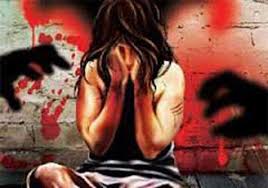Tumakuru, Dec 17: A 40-year-old woman was allegedly gang-raped by four persons in Gulur on the outskirts of Tumakuru on Tuesday, but this came to light only on Friday.
 The woman, left naked in an acacia grove for two days, shouted out for help but when it went unnoticed, she finally gathered the courage to walk out of the grove. She was spotted by local villagers who rushed to her rescue with clothes and took her to hospital.
The woman, left naked in an acacia grove for two days, shouted out for help but when it went unnoticed, she finally gathered the courage to walk out of the grove. She was spotted by local villagers who rushed to her rescue with clothes and took her to hospital.
The woman had come to Tumakuru on Tuesday from Chikkanayakanahalli and wanted to go to Gulur. She was waiting for a bus near Kunigal Circle, when an auto driver and his friends offered to drop her.
Instead, they took the autotowards Gulur and raped her in a grove. According to Tumakuru SP Karthik Reddy, the woman was a labourer in an arecanut farm in Gulur, and was travelling to meet her employer to collect her wages, which had not been paid.
On the way, the driver and his friends offered her a soft drink, after which she fell unconscious. The four men are said to have taken the woman in an unconscious state and raped her. When she regained consciousness, the gang had left and taken away her clothes. For two days, she stayed in the grove afraid to come out.
The survivor is now admitted to a hospital in Tumakuru, where her condition is said to be stable.




Comments
Only she is to be blamed for her own mistakes
Add new comment